Friday we celebrated the 177th Dies Natalis of TU Delft. Delta provides you with a recap of the speeches and cultural contributions during the ceremony.
The theme of the 177th Dies Natalis was captured on the TU Delft Library. (Photos: Nina van Wijk)
Marjolein van der Veldt and Nina van Wijk
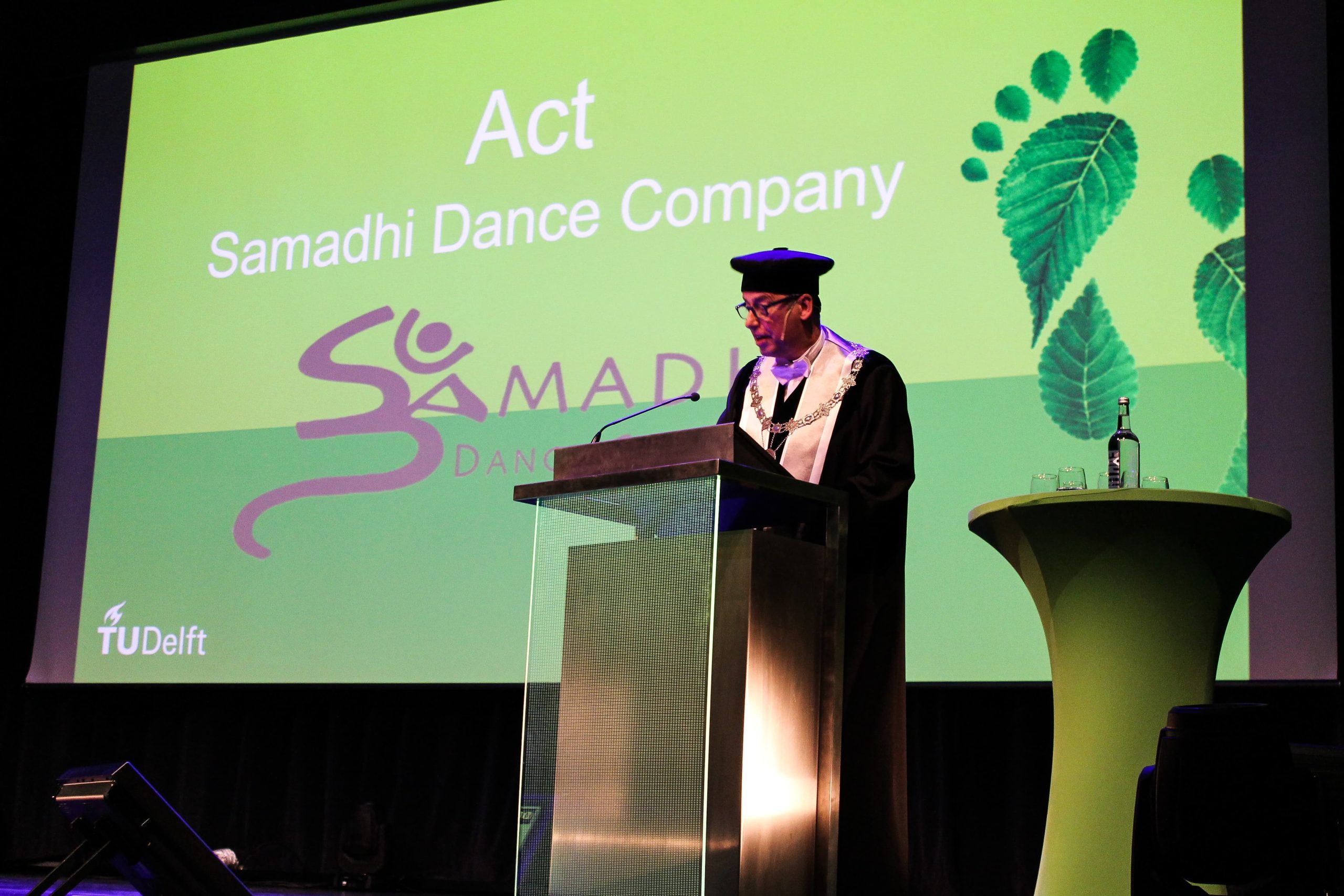 Rector Magnificus Tim van der Hagen introduces the dancing group.
Rector Magnificus Tim van der Hagen introduces the dancing group. Rector magnificus and president of TU Delft, professor Tim van der Hagen, opened the 177th Dies Natalis ceremony. He lured the audience into thinking he forgot his speech and ran off stage. It took him ten seconds to return on screen in Forzes electric race car to retrieve the speech from his office. Van der Hagen further talked about a ray of hope. “Never before in history have there been more Dutch engineers. Many of them from TU Delft. And never have there been more students at TU. With all the potential we should be able to make a difference.”
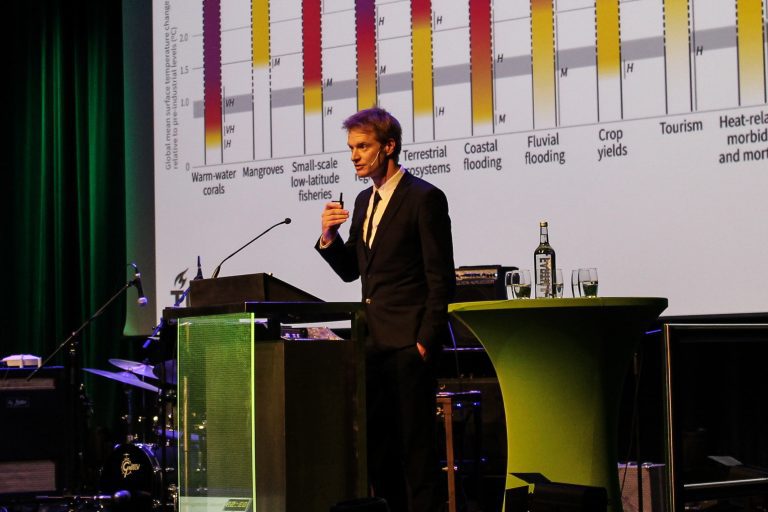 Dr. Stef Lhermitte reflects on today’s symposium.
Dr. Stef Lhermitte reflects on today’s symposium.This morning a symposium was held on climate action. Dr. Stef Lhermitte (Civil Engineering and Geosciences) provided reflections on what had been said. “Good design combined with individual actions can result in quick wins”, he stated before presenting his conclusions on the symposium:
- There is no single track towards good climate action.
- Technology and people together can make a change
- Academic research can provide insight in effectiveness and functions of novel solutions.
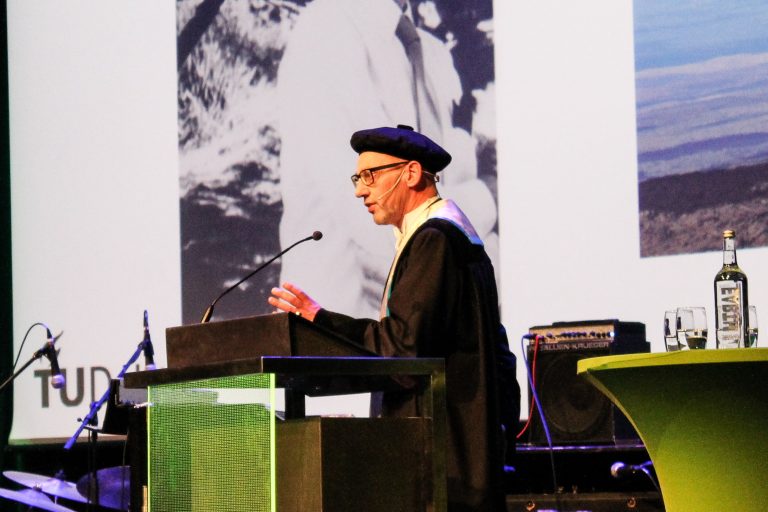 Professor Pier Siebesma on predicting the changing climate.
Professor Pier Siebesma on predicting the changing climate. Professor Pier Siebesma from the faculty of Civil Engineering and Geosciences is also known as ‘the cloud professor’. In his talk he emphasised that in order to make a (climate) change, we need to know how the climate will change in the future. For thirty years he has been working on how to model our climate on a variety of scales. However, to gain the right information, we’ll need supercomputers that have a processing capacity dozens times faster than what we have today.
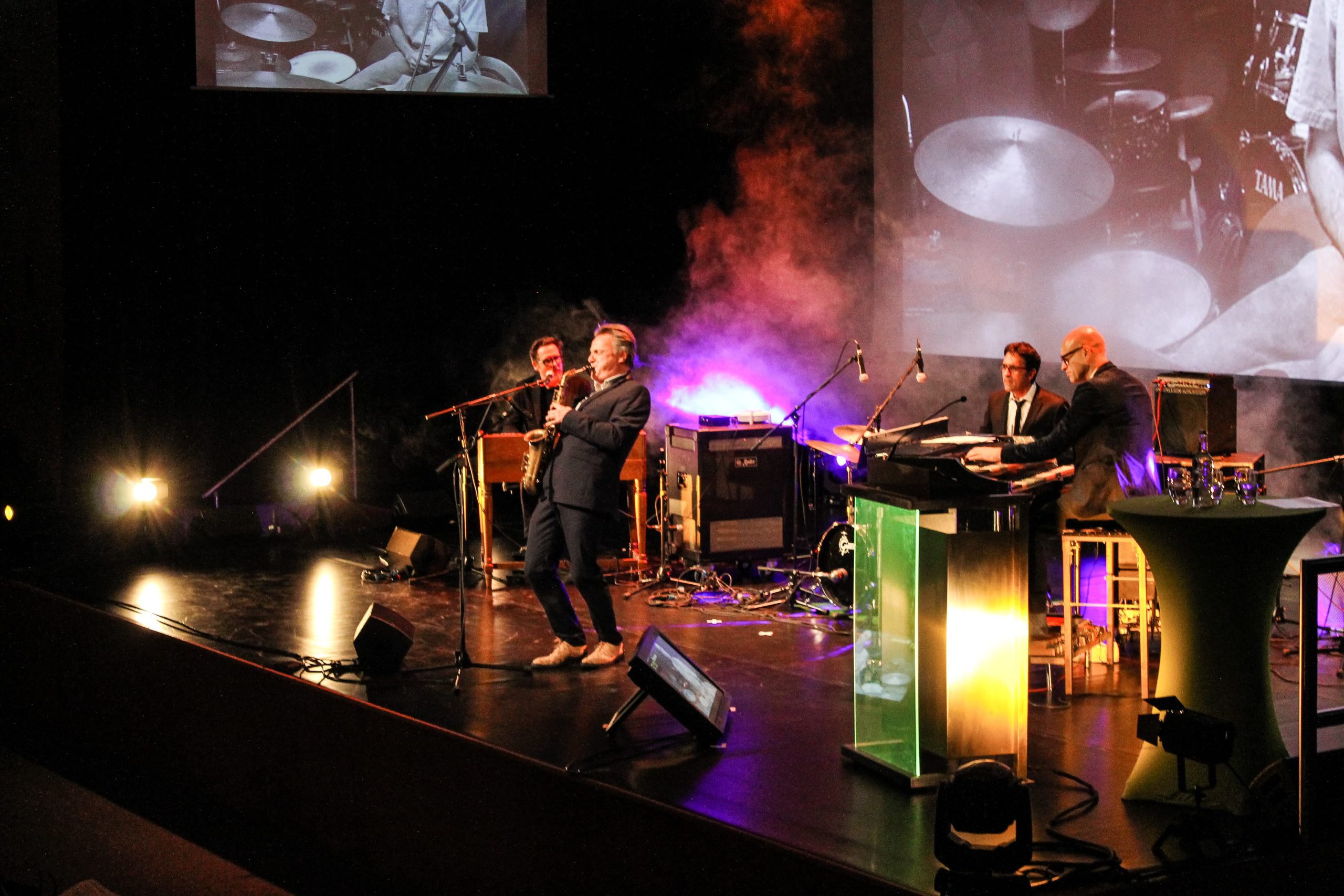 Occasional jazz quartet TU-Four on stage.
Occasional jazz quartet TU-Four on stage.A musical interlude was provided by jazz quartet TU-four. They were founded only and especially for the Dies Natalis. The quartet played two songs, one was a ‘solar energy’ inspired version of Sunny (originally performed by Bobby Hebb) and the second was a special composition made by Frank Montis called ‘Make it right, a plea for climate action’.
The ceremony was closed by dance group Samadhi Dance Company.
 Professor Mercedes Maroto-Valer was awarded an honorary doctorate.
Professor Mercedes Maroto-Valer was awarded an honorary doctorate.Honorary doctorates were awarded to Søren Hermansen, adjunct professor at Aalborg University and professor Mercedes Maroto-Valer from Heriot-Watt University. Andy van den Dobbelsteen contributed as honorary promotor for Hermansen who founded the first carbon- and climate neutral island in the world.
Paulien Herder contributed as honorary promotor for Maroto-Valer. She called her ‘an outstanding rolemodel for both established and aspiring researchers’.
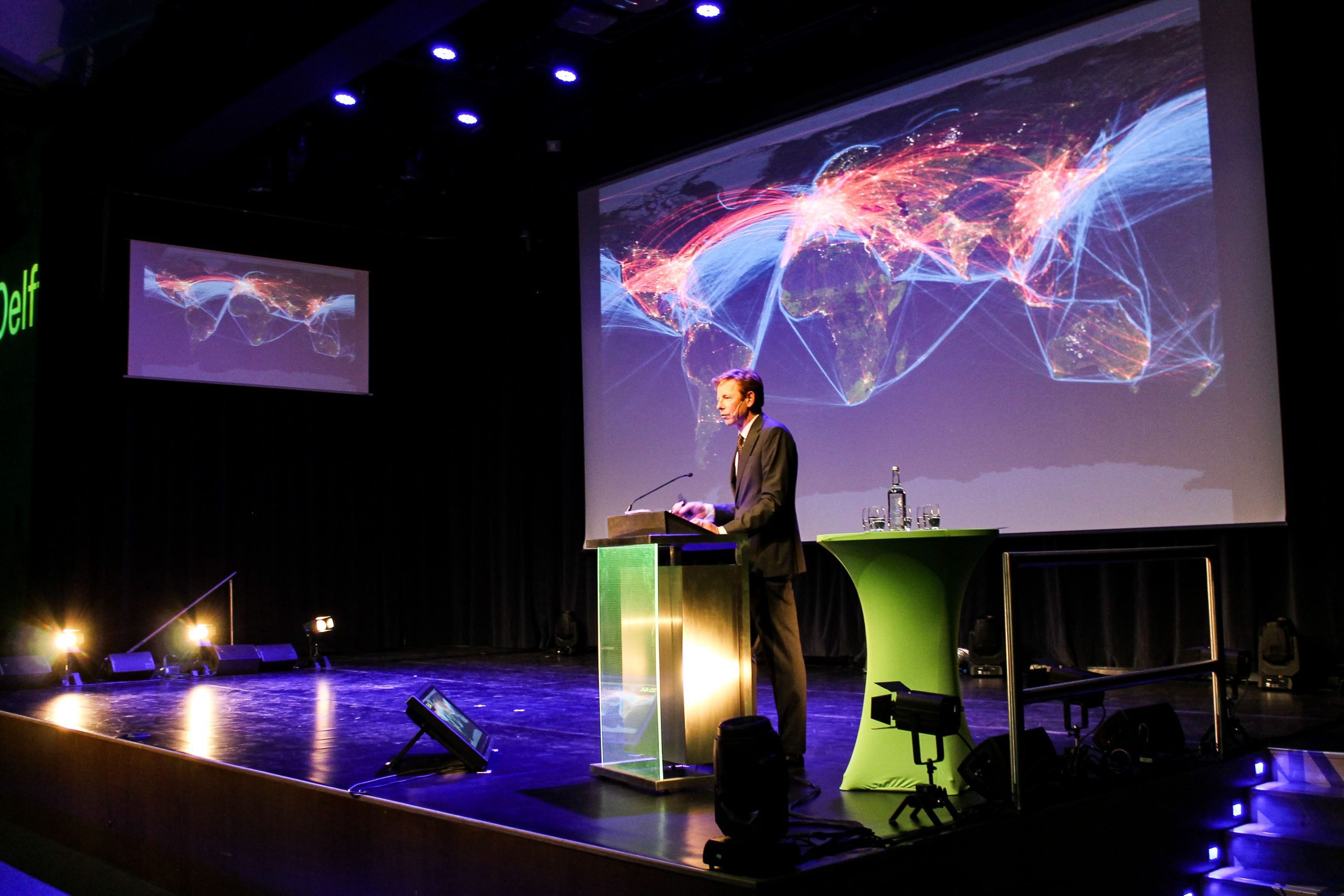 Meteorologist Gerrit Hiemstra discusess action for climate change.
Meteorologist Gerrit Hiemstra discusess action for climate change. Meteorologist and NOS weather presenter, Gerrit Hiemstra, called upon the TU community to take action. “If we want to change society, we first have to change ourselves”, he stated. He provided the audience with some hands-on solutions. If you want to reduce your carbon footprint you can:
- Become a vegetarian
- Buy an electrical car. Or better: use public transportation or go by bike.
- Don’t travel by airplane
- Buy less, especially from China.
Also read:
These are the new honorary doctors at the 177th Dies
Rainbow flag flies during the Dies
Heb je een vraag of opmerking over dit artikel?
m.vanderveldt@tudelft.nl


Comments are closed.